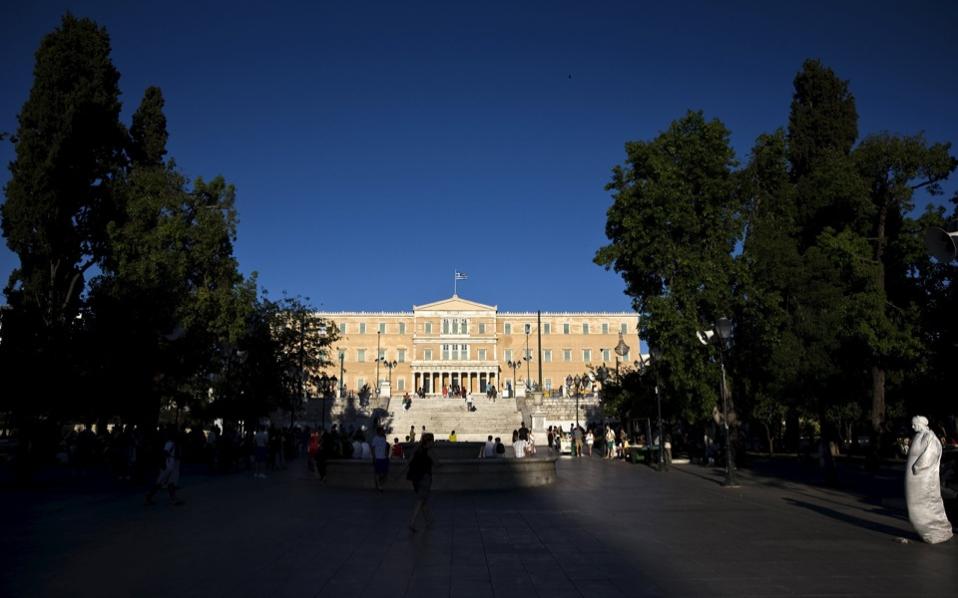Greece and lenders seek to break impasse in reform targets

Greece and its creditors resumed attempts on Tuesday to break an impasse on fiscal reforms as the country's leftist-led government criticised the IMF for keeping quiet about the risks of deeper austerity measures in the discussions with lenders.
Reviews of reforms the Greek government should undertake as part of a multi-billion euro bailout have been beset with delays. The latest hinges on labour and energy reforms, and the level of surplus targets when the credit line expires in 2018.
Greece wants lower primary surplus targets than the 3.5 percent sought by its European partners, a level which implies further austerity on a nation bowed by seven years of recession.
“The position of the Greek government is steadfast on labour issues and fiscal targets,” government spokesman Dimitris Tzanakopoulos said.
The IMF, which has yet to decide if it will fund Greece's third bailout program, says a 3.5 percent primary surplus in 2018 onwards advocated by the European arm of lenders is unrealistic. It says the country will need fresh austerity measures to meet that target along with substantial debt relief.
That concern has kept the IMF at bay since Greece signed up to the latest bailout in 2015 under duress at the prospect of being turfed out of the eurozone. Now just eurozone governments are footing the bailout bill.
Senior IMF officials stuck to that assessment of surplus targets being too high.
“We warned this (3.5 percent target) would generate a degree of austerity that could prevent the nascent recovery from taking hold,” Poul Thomsen, head of the IMF's European Department and Chief Economist Maury Obstfeld, wrote in an IMF blog on Monday.
Athens, which has found fault with the Washington-based fund for not being vocal enough in pushing that view with Europeans, says its medium-term target is still under negotiation. It has suggested lowering it to 2.5 percent of GDP.
“The IMF would do well to restore its credibility both towards Greece, and to the international community by insisting on the need for reducing primary surplus targets to 1.5 percent at the end of the program,” Tzanakopoulos said.
Athens has received more than 200 billion euros in bailouts since 2010, and the country is the most indebted in Europe with a debt mountain just under 180 percent of its national output.
Greece's European partners have offered Greece short-term debt relief but have wavered on offering anything more specific for fear of looking soft to voters in crunch election years several European nations.
[Reuters]





